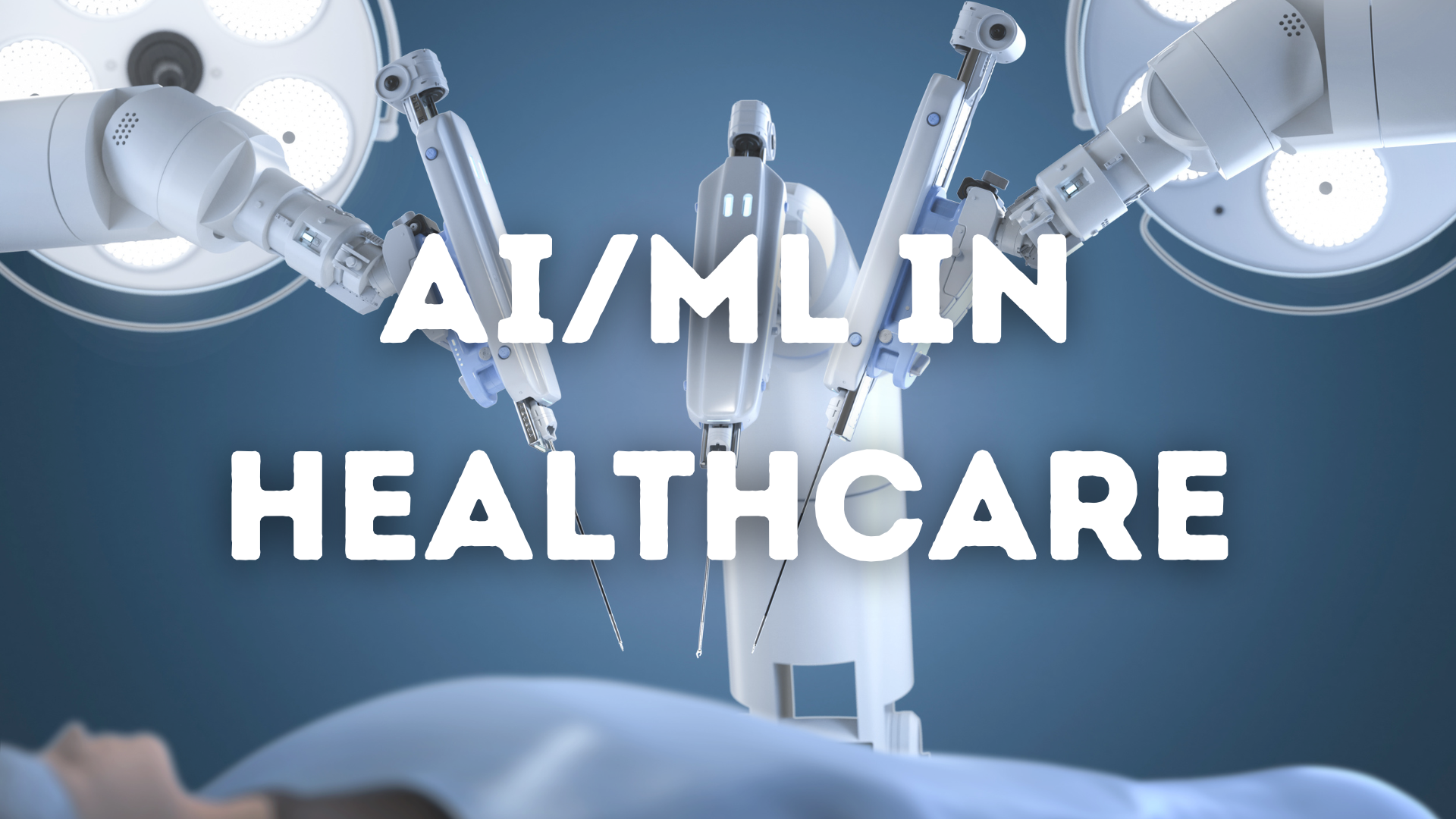
Revolutionizing Healthcare: How AI and Machine Learning Will Disrupt Modern Healthcare
AI-enabled imaging has helped detect severe conditions in patients with improved accuracy in radiology, pathology, and endoscopy, with many questioning whether AI can outperform doctors in diagnosing infectious diseases.
AI and ML models are transforming how we experience healthcare, from diagnosing diseases to pinpointing tumor risks. For instance, Canadian company BlueDot used AI to detect early warning signs of the outbreak of the COVID-19 virus before major health organizations issued alerts. In another example, Google's DeepMind developed an AI model that can predict acute kidney injury up to 48 hours in advance, giving doctors time to intervene before the condition becomes critical.
More recently, AI-powered breast cancer detection systems have surpassed radiologists' accuracy, spotting tumors in mammograms that even experienced professionals might miss. According to the American College of Radiology Data Science Institute, about 9% of U.S. radiologists use AI breast imaging.
These are not just cool headlines; they are life-changing innovations. AI is reshaping healthcare into something faster, smarter, and more patient-focused.
Why do AI and ML Matter in Healthcare?
Healthcare generates enormous amounts of data, from patient records and lab results to medical images and wearable devices. Humans cannot analyze all this data quickly, accurately, and efficiently, but AI and ML can.
Similarly, trained ML models and tools can use advanced images and sound reasoning to identify anomalies such as a growing breast tumor or swollen lungs.
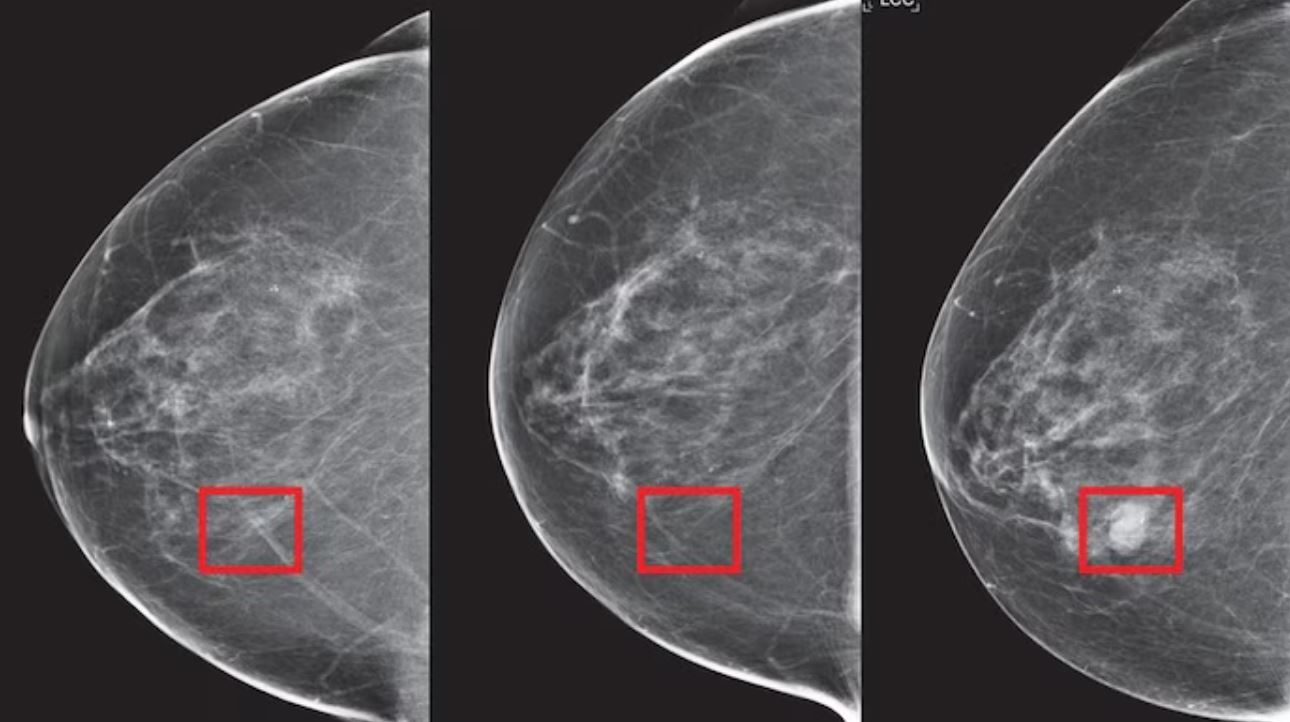
AI can identify patterns humans might miss, make faster diagnoses, predict patient outcomes, and recommend appropriate treatments, saving time and improving accuracy.
The emergence of Agentic AI, such as Google Lens, and Applied AI applications, such as Noom, Buoy Health, and Hucu.ai, has made diagnosis quicker, with many freely available and paid smartphone apps.
However, in-depth diagnosis of any disease or condition may require advanced AI-powered diagnostics accessible only to clinics and hospitals.
AI and ML will continue to empower the healthcare sector to boost medical services, reduce costs, and mitigate the risk of fraudulent healthcare claims.
How AI is Impacting Real-world Healthcare
AI-driven tools are used daily in many areas of modern healthcare, some unknowingly, such as online appointment scheduling services and healthcare apps.
Here are a few sectors and their examples of AI creating immense impacts.
1. Faster and More Accurate Medical Diagnosis
AI models trained on pre-trained data, advanced imaging, and sound resonance could detect medical conditions like cancer, heart conditions, and diabetes more quickly and accurately than traditional methods of diagnosis.
Here are a few examples.
- Detecting cancers earlier: Ibex’s Galen Breast algorithm is an excellent example of a commercially accessible AI-driven breast imaging system that can detect signs of breast cancer earlier than radiologists. Similarly, PathAI, an AI-assisted image management system, detects cancer from tissue samples.
- Identifying rare diseases: IBM Watson analyzed a patient’s symptoms and diagnosed a rare leukemia in minutes using advanced imaging and trained data.
- Analyzing medical images: AI-powered tools like Aidoc instantly flag strokes, fractures, and tumors in CT scans and MRIs. They highlight areas that need closer attention, helping doctors catch issues early. Google's DeepMind, for instance, developed an AI system that can spot over 50 eye diseases with optimal accuracy.
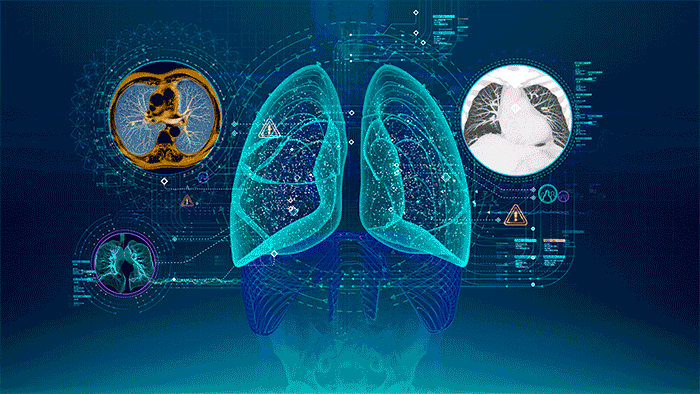
2. Drug Discovery and Development
Creating new medicines often takes years and billions of dollars in research and development, but only a few drugs may take off in their lifetime.
AI-driven models and technology can speed up this process by analyzing chemical compounds and testing various combinations within a short span, drastically reducing the time spent in R&D. Moreover, things get done quickly, requiring minimal human input and resources, which helps cut costs.
A prime example would be discovering the COVID-19 vaccine, where AI identified possible treatment candidates in record time.
Here is how AI helps with drug development and precision medicine.
- Identifying potential drugs: Deep learning scans millions of compounds to find promising candidates.
- Predicting clinical trial success: AI reduces trial failures by selecting the best candidates.
- Repurposing old drugs: ML found that an existing arthritis drug could help treat Alzheimer’s using numerous syntheses.
3. Predictive Analytics
Hospitals use AI to predict which patients might develop complications. For example, an AI system might notice a patient's heart rate and oxygen levels dropping in a pattern seen in others who later developed sepsis, alerting doctors beforehand.
- Data Pattern Detection: AI models (like machine learning) identify hidden trends and correlations in historical data to forecast future outcomes.
- Early disease detection: Analyzes EHRs, genetic data, and lifestyle factors to flag high-risk patients.
- Patient Deterioration Alerts: Forecast ICU admissions, cardiac arrest, or sepsis risk by monitoring real-time vitals and lab results to predict deterioration.
- Resource Optimization: Learns from past patterns to manage scheduling and reduce wait times, improving patient flow, bed occupancy, and staff requirements in hospitals.
4. Robotics and Surgery
AI-powered robots assist in surgeries, making procedures less invasive and more precise. The Da Vinci Surgical System is a great example. It uses AI to guide tiny instruments with extreme precision, reducing recovery time for patients.
- Enhanced Precision: Robotic arms perform with sub-millimeter accuracy, reducing damage to surrounding healthy tissues.
- Minimally Invasive Procedures: Smaller incisions that induce less pain, faster recovery, and reduced scarring are used.
- Reduced Risk of Infection: Smaller incisions and more controlled movements minimize contamination.
5. Personalized Medicine
AI helps predict treatment effectiveness based on genomic, demographic, and historical response data to personalize drug combinations or therapy paths.
AI can analyze a person’s genetics, lifestyle, and medical history to recommend tailored treatments.
- Predicting drug response: Software powered by the ML model can analyze DNA to determine which medications are likely to work best (precision medicine).
- Optimizing chemotherapy doses: AI calculates the ideal radiation dose for cancer patients, minimizing side effects from chronic pain following the chemotherapy.
- Monitoring chronic diseases: Apps like Livongo use AI to help people with diabetes manage blood sugar in real-time.
6. Reducing Administrative Burden
According to a study by McKinsey & Company, AI could automate up to 45% of administrative tasks in healthcare, freeing up $150 billion in annual costs.
Professionals and medical staff spend half their time revising patients’ health history and paperwork. AI automates this tedious workload and empowers hospital management to focus on the betterment of patients.
- Medical transcription: Tools like Nuance DAX turn doctor-patient conversations into notes, saving doctors precious writing time.
- Insurance claims processing: AI summarizes filing, detects billing errors, and speeds up insurance approvals to high accuracy.
- Hospital operations: Predictive analytics helps manage bed shortages and staff scheduling during epidemics and emergencies.
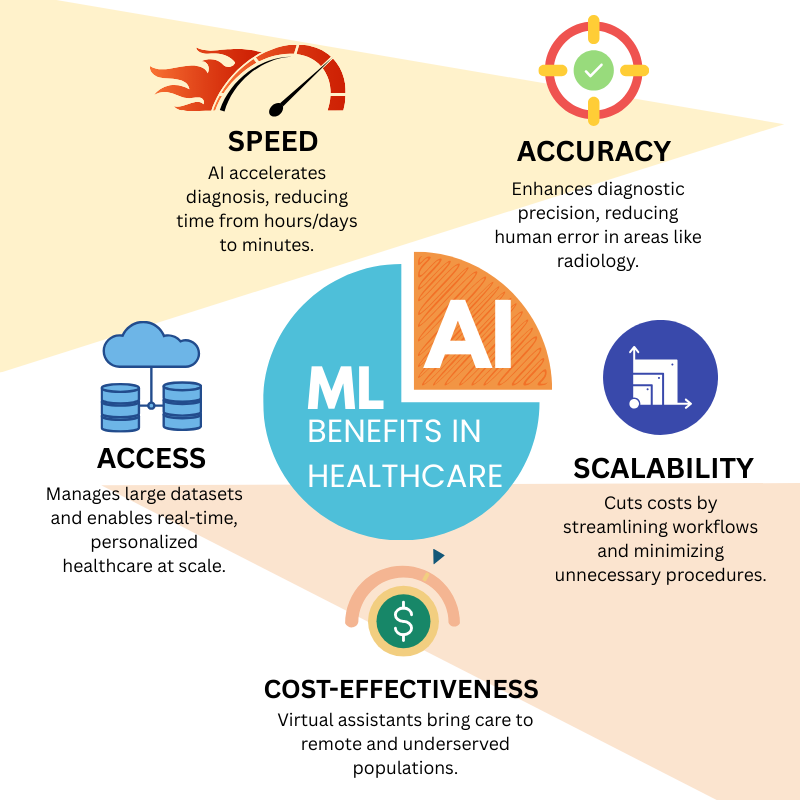
Challenges and Concerns of AI in Healthcare
While AI is promising, it is not without challenges.
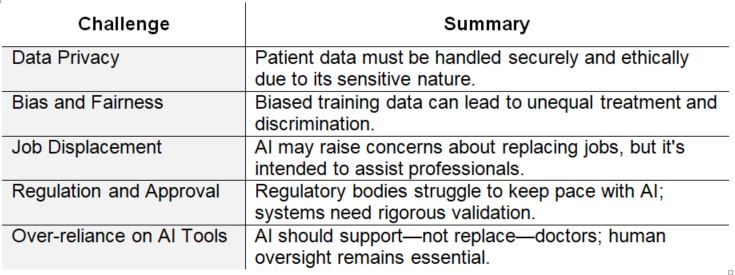
The Future of AI in Healthcare
The future of AI in healthcare looks promising, with governments, institutions, and individuals advocating for more precise and cost-friendly AI-driven models and tools.
Here are a few examples of how AI will play out in healthcare soon.
- AI-Driven Hospitals: Fully automated systems will manage everything from patient check-ins to follow-ups, assist in taking medicines, and even call doctors and nurses when complications suddenly arise in a patient.
- Wearable Devices: Smartwatches and sensors continuously monitor a patient's health and alert users or doctors to problems. More so, with wireless connection to smart devices, AI wearables call emergency service providers whenever and wherever necessary.
- Telemedicine with AI: Virtual appointments with doctors and healthcare professionals enhanced by AI tools that review symptoms and suggest next steps.
- Brain-Computer Interfaces: Companies like Neuralink aim to treat paralysis and brain disorders using AI-driven implants.
- Global Health Solutions: AI-driven systems will help track and manage diseases worldwide, especially in under-resourced regions.
Conclusion
AI and Machine Learning are not replacing healthcare professionals but assisting them and mostly compensating for downtime. With the power of data and intelligent algorithms, healthcare could become more personalized, efficient, and proactive, saving millions of lives and expenses in healthcare.
Comment and follow Iowa4tech for the latest news and information on advancements in AI and innovations in the technological industry.
Related Post
RECOMMENDED POSTS
API-Centric Architecture: The Present & Future of SaaS
06, Feb, 2026
RECOMMENDED TOPICS
TAGS
- artificial intelligence
- agentic ai
- ai
- machine learning
- deepseek
- llm
- saas
- growth engineering
- ai/ml
- chatgpt
- data science
- gpt
- openai
- ai development
- gcp
- sql query
- data isolation
- db expert
- database optimize
- customer expectation
- sales growth
- cloud management
- cloud storage
- cloud optimization
- aws
- deep learning
- modular saas
- social media
- social media marketing
- social influencers
- api
- application
- python
- software engineering
- scalable architecture
- api based architecture
- mobile development
- bpa
- climate change
- llm models
- leadership
- it development
- empathy
- static data
- dynamic data
- ai model
- open source
- xai
- qwenlm
- database management
- automation
- healthcare
- modern medicine
- growth hacks
- data roles
- data analyst
- data scientist
- data engineer
- data visualization
- productivity
- artificial intelligene
- test
ABOUT
Stay ahead in the world of technology with Iowa4Tech.com! Explore the latest trends in AI, software development, cybersecurity, and emerging tech, along with expert insights and industry updates.
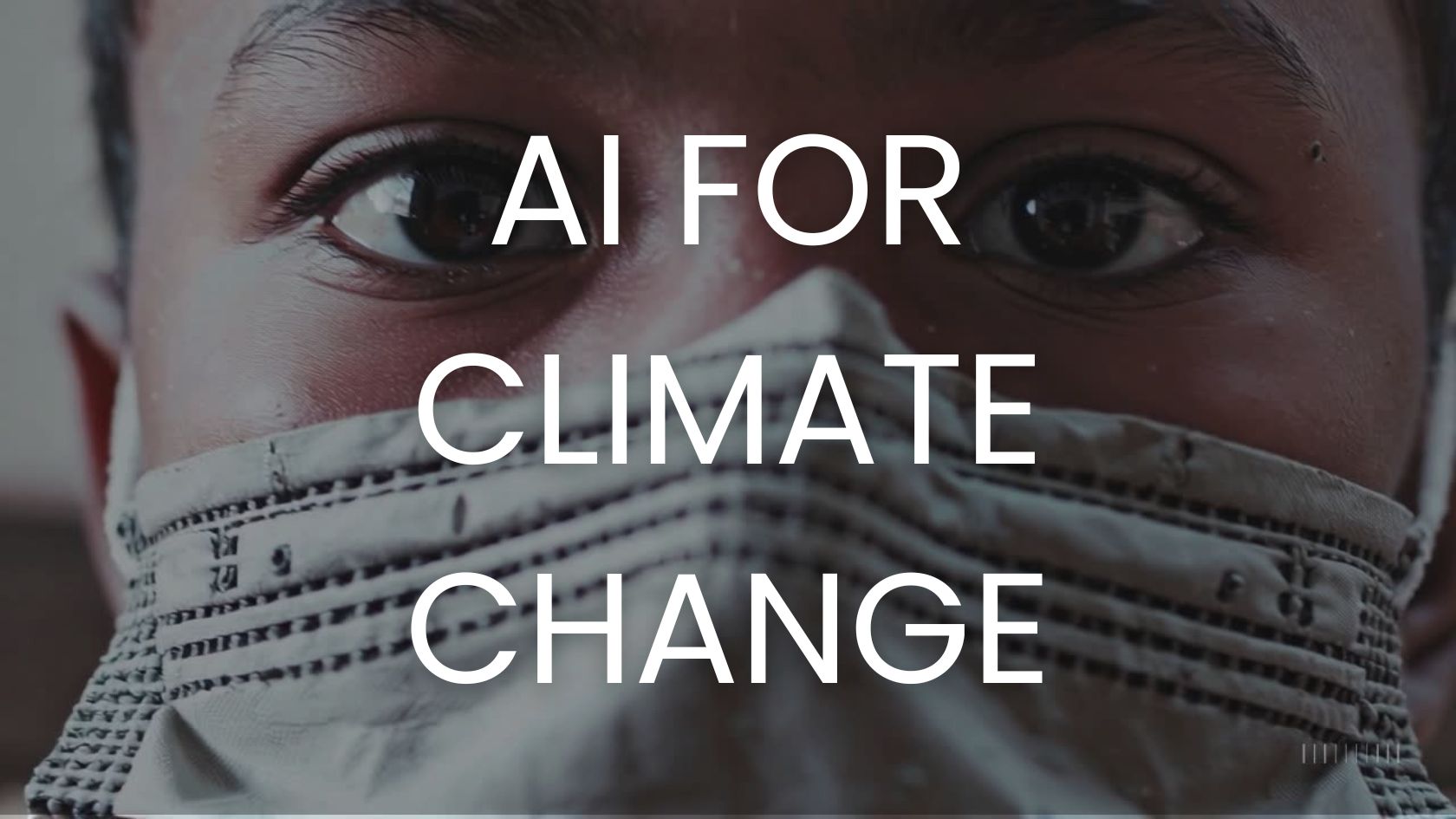
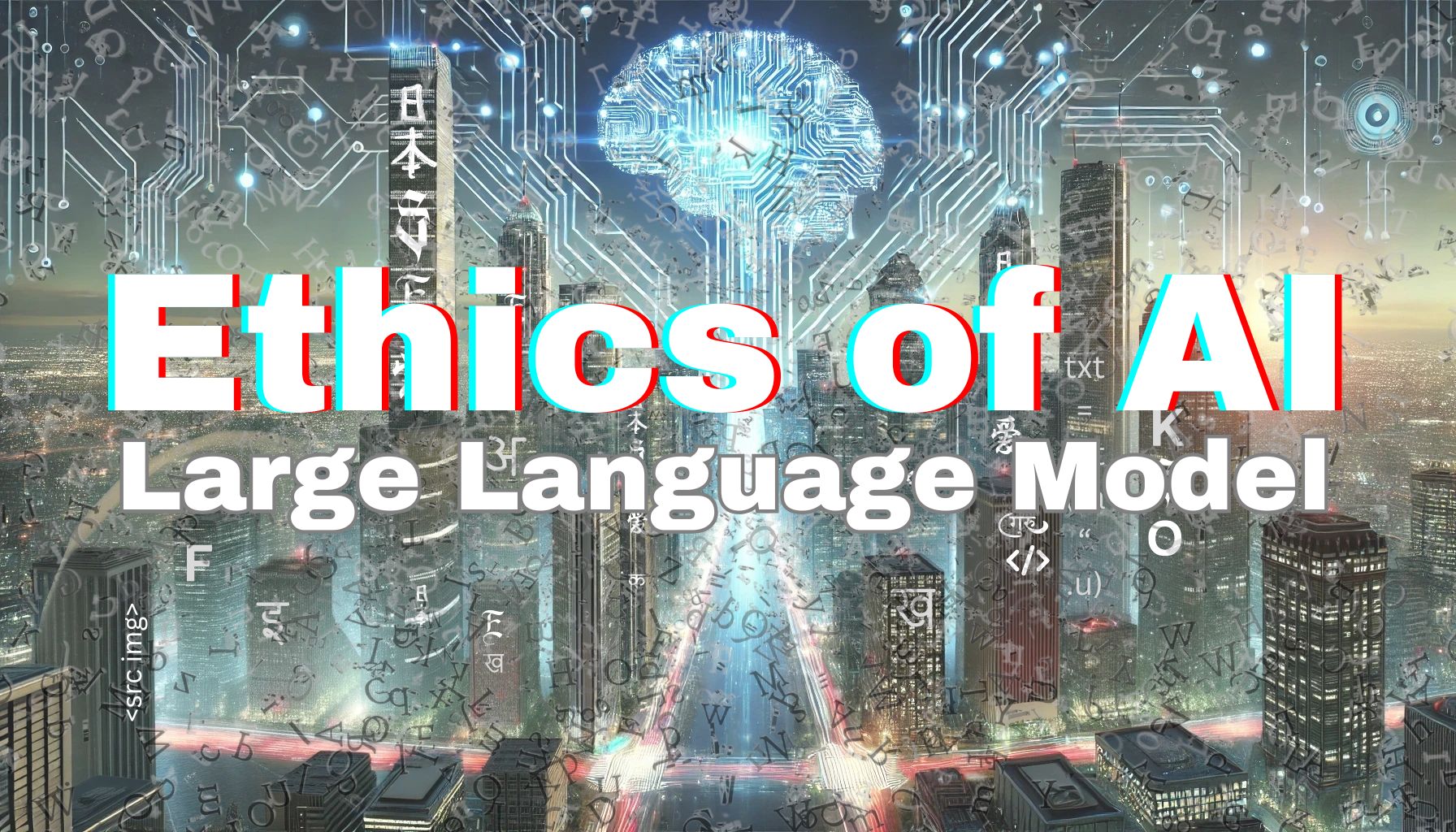
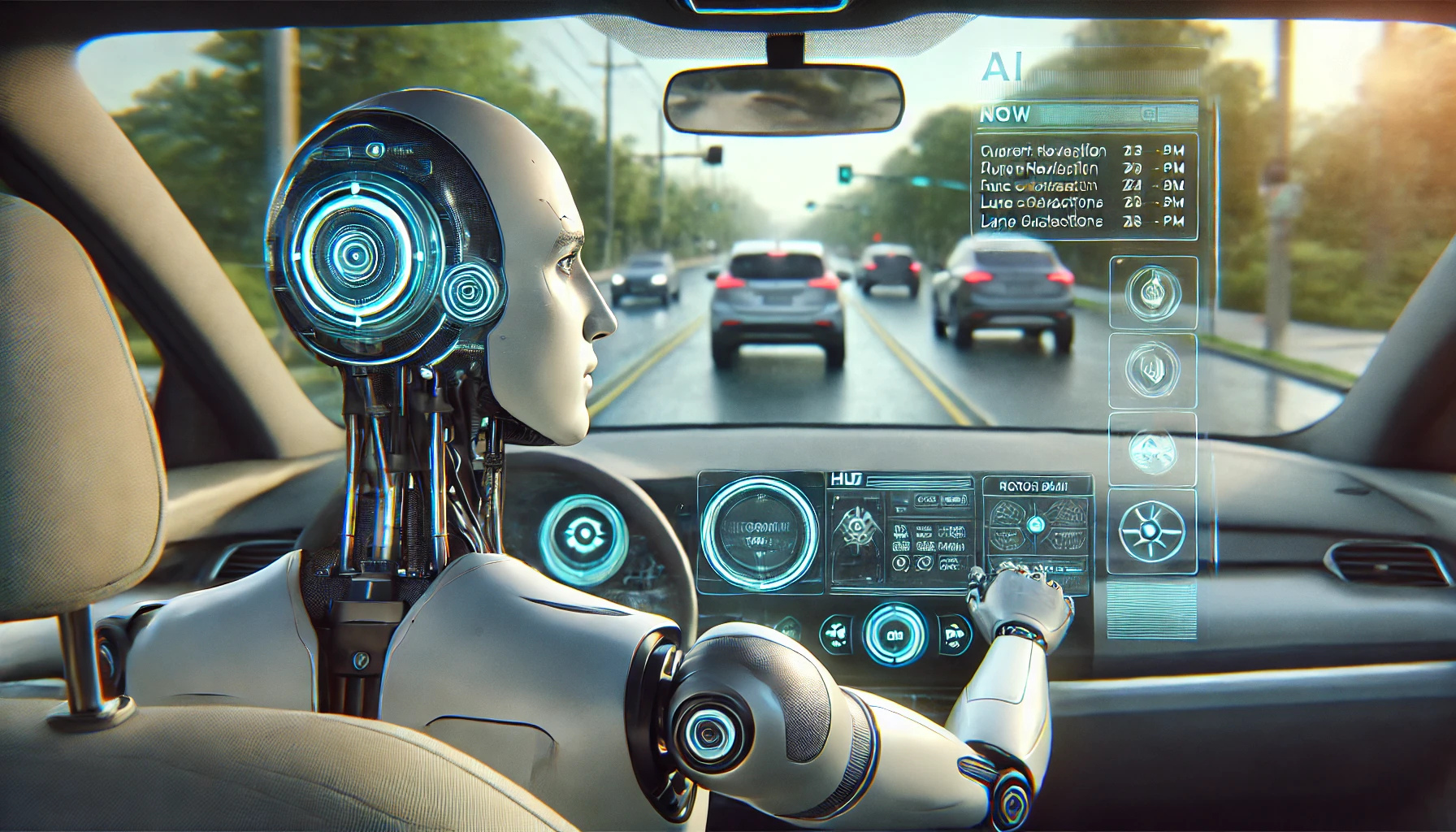

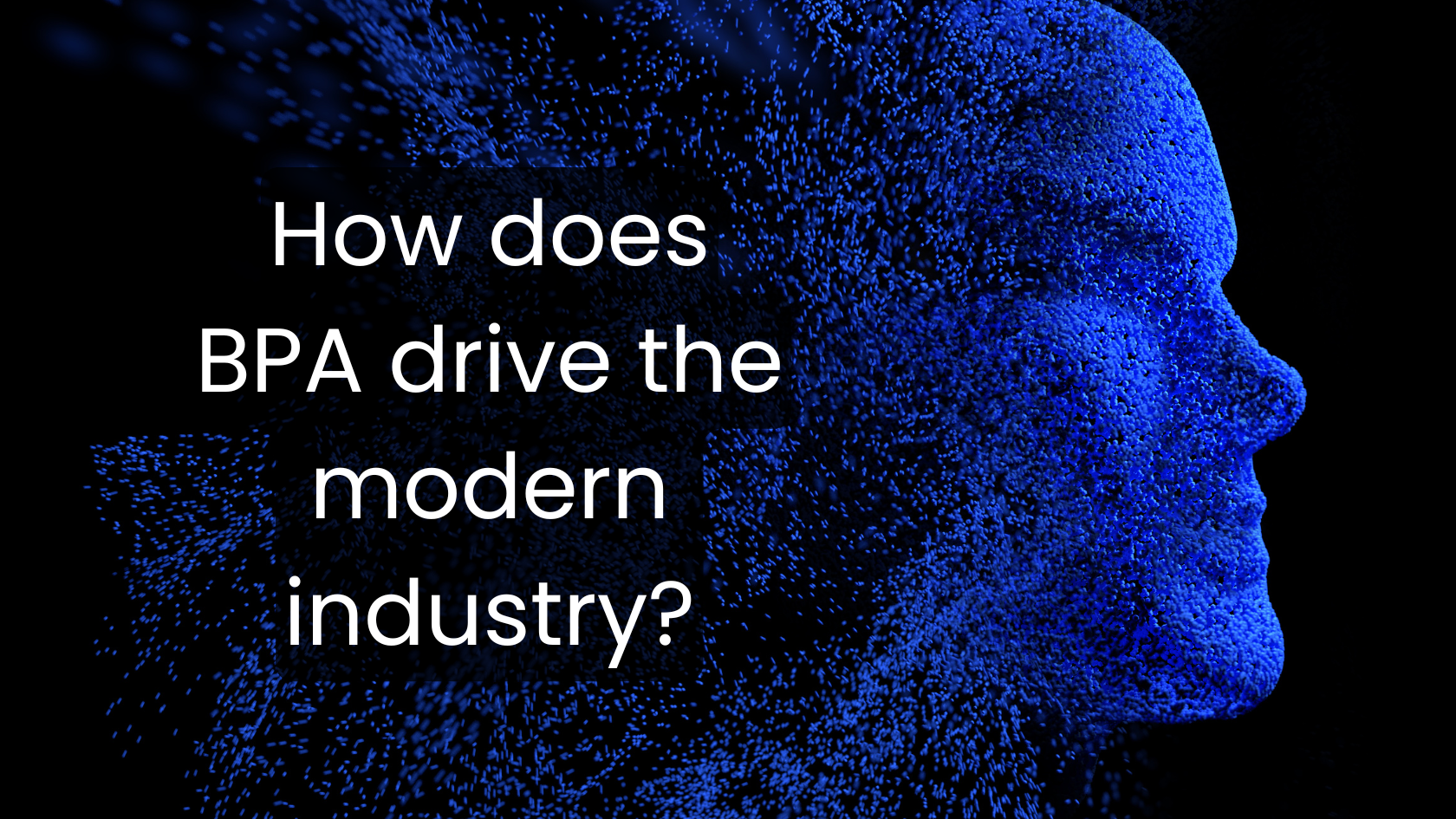
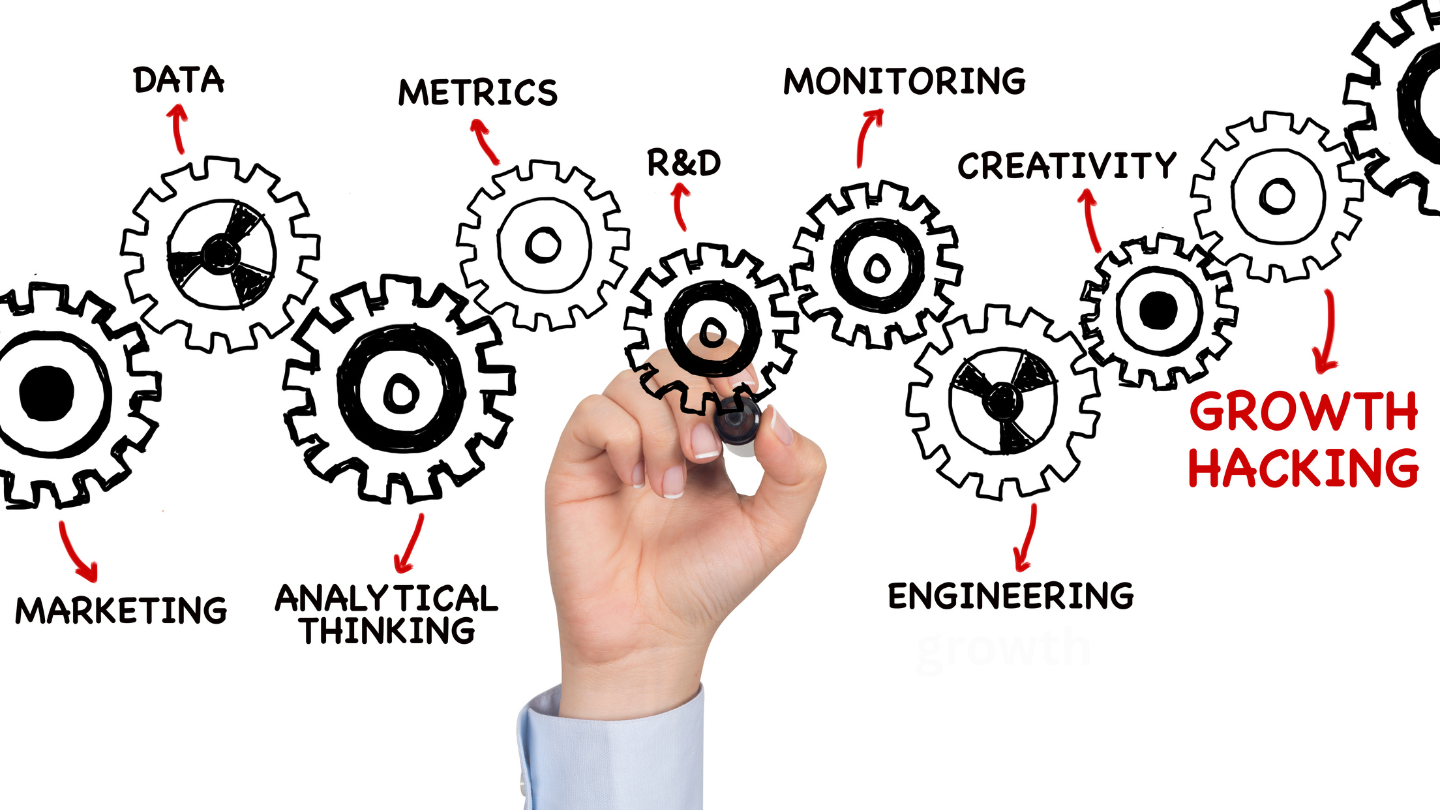
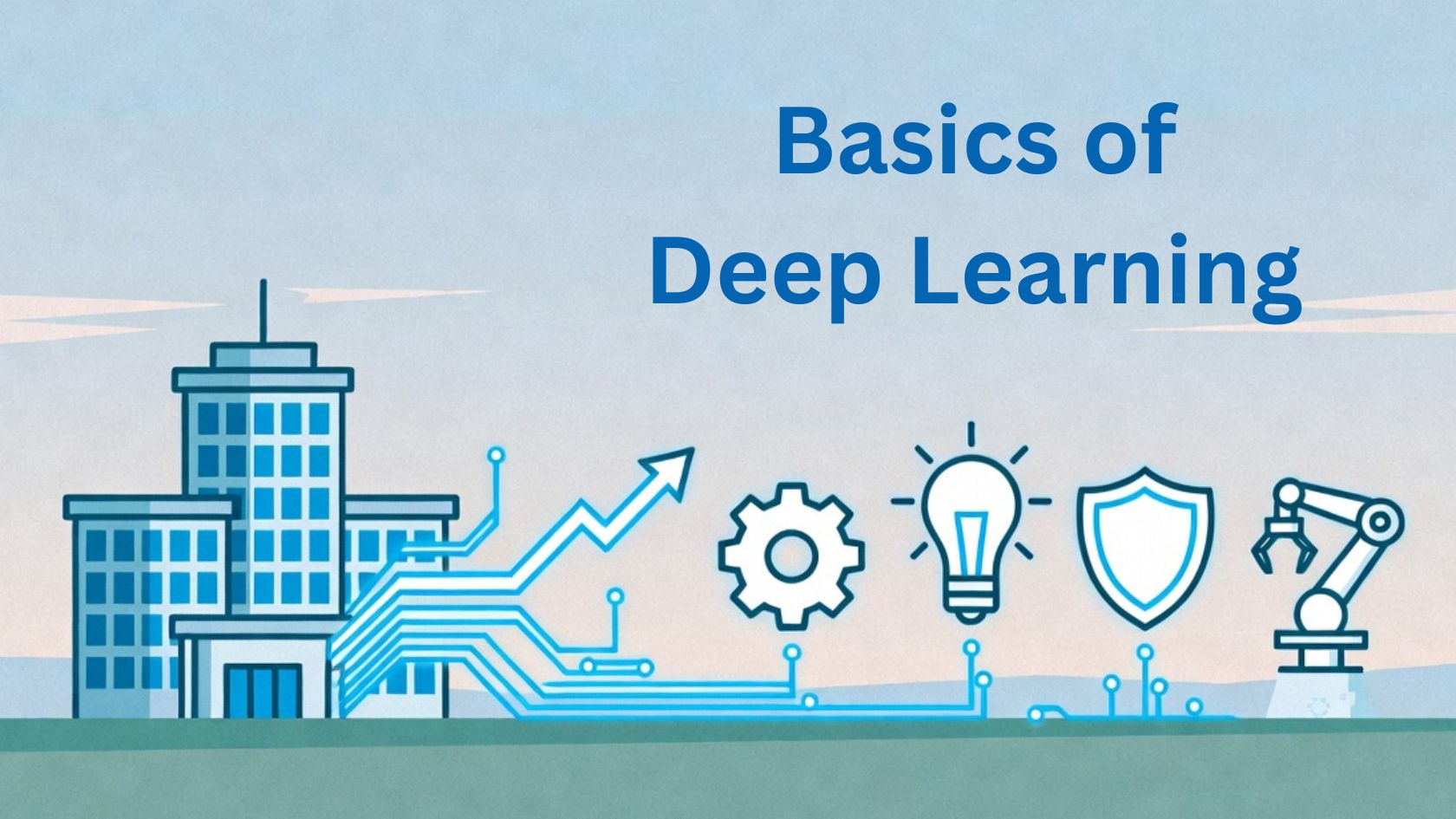
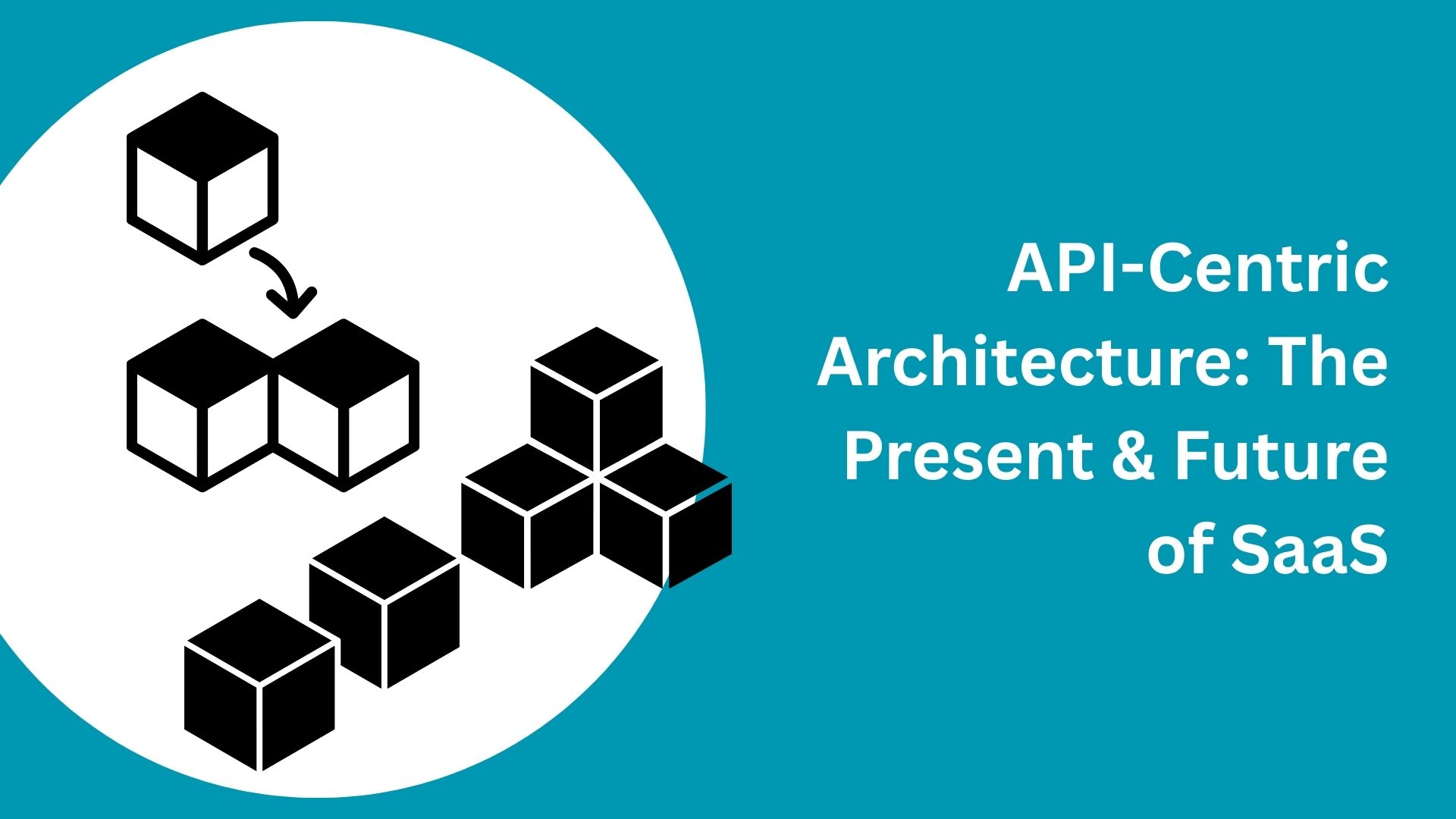
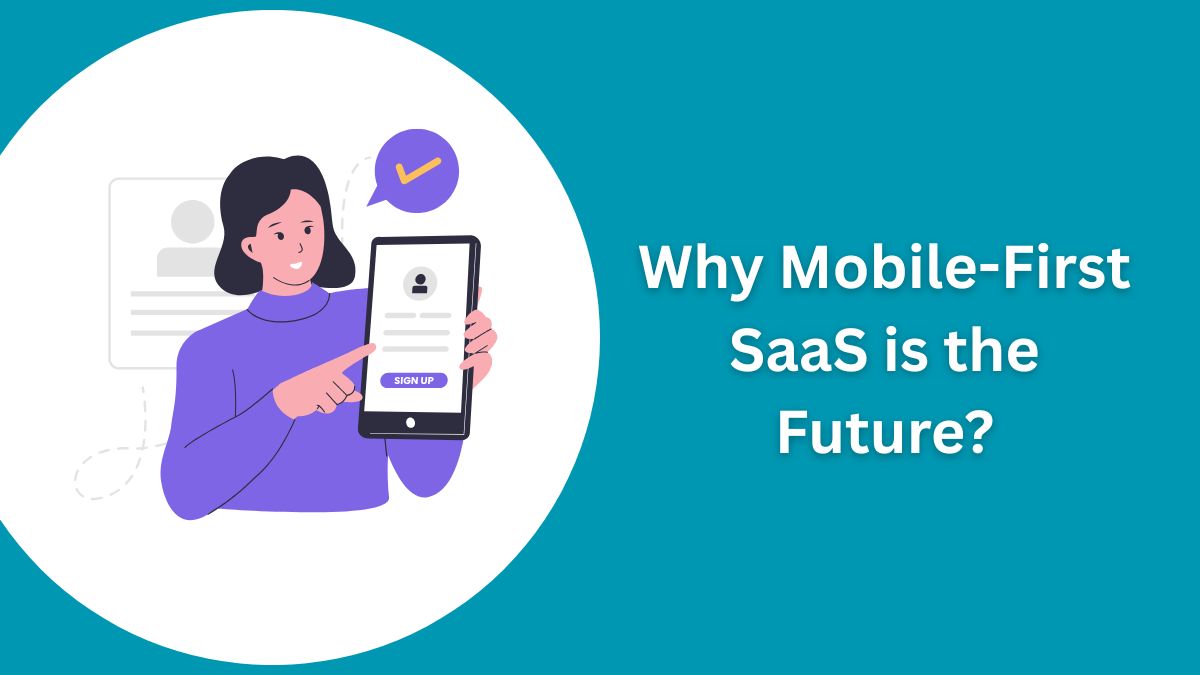
Comments(0)
Leave a Reply
Your email address will not be published. Required fields are marked *